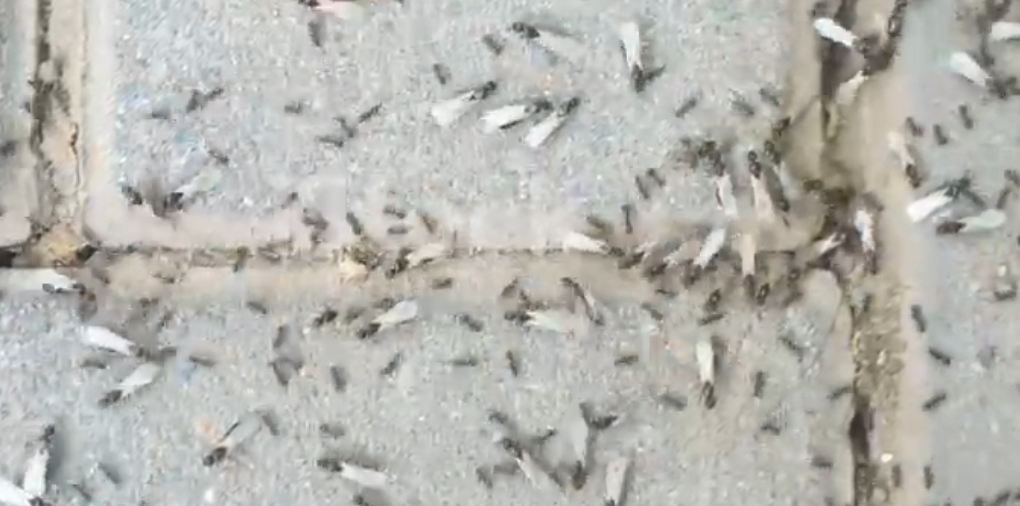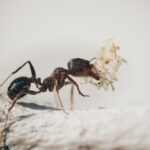
10 Interesting Facts About UK Ants
UK ants are among the most commonly encountered insects in homes and gardens across Britain. These industrious insects often go unnoticed, yet they play important roles in our local ecosystems and sometimes cause issues for homeowners. Whether you’re curious about their behaviour or need to manage an infestation, these ten facts about ants in the UK will give you a deeper understanding of these small but powerful creatures.
Table of Contents
- Over 50 Ant Species Live in the UK
- The Black Garden Ant is the Most Common UK Ant
- UK Ants Show Super Strength
- How UK Ants Use Smell to Navigate
- Some UK Ants Farm Aphids
- UK Ants Don’t Have Lungs
- UK Ant Queens Can Live for Decades
- UK Ants Communicate Through Chemicals
- Flying Ant Day: A Unique UK Phenomenon
- Do UK Ants Bite? What You Should Know
1. Over 50 Ant Species Live in the UK
There are more than 50 known species of UK ants, many of which go unseen by the public. While most people recognise the black garden ant or red ant, others live in forests, moorlands, and even sandy coastlines. These ants support biodiversity by improving soil structure and managing other insect populations.
2. The Black Garden Ant is the Most Common UK Ant
Lasius niger, commonly known as the black garden ant, dominates UK gardens and pavements. You’ll spot them forming neat trails as they search for food. Their underground colonies grow large, often producing flying ants in the summer. Although they may appear in homes, they don’t bite or sting.
3. UK Ants Show Super Strength
Ants in the UK display remarkable strength for their size. Many can lift 10 to 50 times their body weight. This strength allows them to transport food, soil, or debris back to the nest efficiently. Their strength also supports their ability to build vast tunnel systems under lawns or patios.
4. How UK Ants Use Smell to Navigate
Rather than using sight, UK ants rely on chemical trails called pheromones. When a worker ant locates food, it leaves a trail that others follow. These trails create structured foraging routes that can sometimes lead straight into homes, especially during warmer weather.
5. Some UK Ants Farm Aphids
Several UK ant species tend to aphids like livestock. The ants defend the aphids from predators and, in return, collect honeydew – a sugary substance aphids excrete. This partnership is common on roses, broad beans, and fruit trees. Left unmanaged, it can contribute to plant damage in gardens.
6. UK Ants Don’t Have Lungs
Despite their high activity levels, ants in the UK don’t breathe as humans do. They draw oxygen through spiracles—tiny openings on their body’s surface. This direct air delivery suits their compact size and allows them to function effectively underground or in tight crevices.
7. UK Ant Queens Can Live for Decades
While worker ants may only live for weeks or months, queens in UK ant colonies can live up to 30 years. A queen remains within the nest, laying eggs and directing colony growth. Her longevity ensures the colony’s stability across multiple seasons.
8. UK Ants Communicate Through Chemicals
Ants in the UK share information using pheromones rather than sound. These chemical signals alert others to food sources, warn of predators, or assist with nest building. Each colony develops its own unique scent signature, helping them stay organised and efficient.
9. Flying Ant Day: A Unique UK Phenomenon
Each summer, many species of UK ants take to the skies in a massive swarm. Known as Flying Ant Day, this annual mating event usually occurs in July or August. The spectacle only lasts a few hours, but it’s an important phase in the colony’s life cycle.
10. Do UK Ants Bite? What You Should Know
Facts about ants in the U.K is that most don’t bite, but red ants (Myrmica rubra) can deliver a small sting if provoked. The irritation usually fades quickly and doesn’t require treatment. These ants stay outdoors in grassy or wooded areas and rarely enter homes unless disturbed.
Conclusion: Why UK Ants Matter
UK ants may seem like a nuisance at times, but they play an essential role in the natural world. From farming aphids to building complex nests, their behaviours offer insight into efficient teamwork and survival. If you’re experiencing an ant infestation, professional intervention ensures quick, effective treatment. Learn more about our full range of ant control services available across Oxfordshire.
Need help dealing with UK ants in your home or garden? Shire Pest Solutions offers expert ant control in Didcot and ant control in Wallingford. Our experienced team uses safe and effective methods tailored to your property.
🐜 Want to learn more about insect behaviour or pest control tips? Visit our pest control blog for articles on wasps, flies, rodents, and more.



